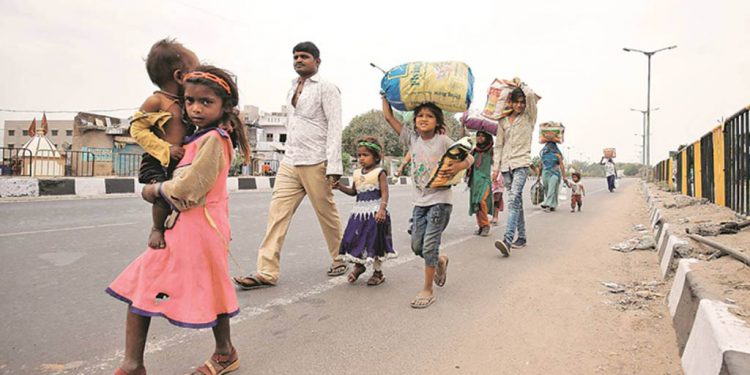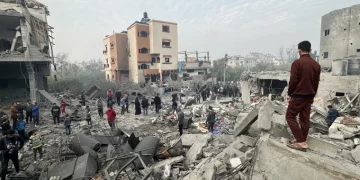Jyotirupa Satpathy
Mind runs into a storm, heart thunders and a rain of tears ooze out of our eyes while we see or read about the painstaking tales of distressed multitudes across the country, caught between the Covid and the lockdown.
Sights and tales of migrant labourers walking long distances to reach back their homes, starving, sweating and some of them dying on the way; or of women delivering on the highway and helplessly abandoning their babies there, were one too many.
From the comfort of our air-conditioned homes, we see such visuals on channels with a heavy heart, contemplate for a while and then get back to our happy lives. We sit watching a movie on home screen, or switch on the laptop, fiddle with it, and pass time.
Oh, there’s so much of new mouth-watering stuff to try out; the new recipes on YouTube, the five- minute DIY from Instagram and the plethora of series available on Netflix and Amazon Prime Video.
In the evening, we go out to feed the stray dogs and there we come across hungry faces looking desperately at the food meant for the dogs. We feel bad, really, and get hurry back home to fetch some food for them as well; the poor ones. By the time we are back in the street, they are gone.
They were the migrant labourers walking as fast as they could, to get back to the small comforts of their huts in rural settings, localities that may not even have a name.
Guilt overpowers us and we go on to think about the countless times we have dismissed them
as pests.
The train of thoughts evokes countless instances of these people who were a significant part of our lives and yet we took them for granted.
They were there around us, always … the old man selling coconuts on the traffic signal; the dreamy eyed young man at the beach, asking us if we want a ride on his camel; the little girl and her mom selling candy floss; the petite woman balancing bricks on her head for the construction of a house that will never be hers…
And, the sun-tanned husband mixing sand and cement, their kids sleeping somewhere on a pile of sand nearby; the old man waiting in his boat, singing broken ballads, to ferry passengers across the river.
The images that fly past our minds are unending. The eunuch who gracefully blesses us on the traffic signal as we hand over a rupee or two; the little kids standing by a weighing machine right by the side of the road; the sweaty man frying samosas, beating eggs or kneading dough, while his chotu in his oversized clothing serves us snacks; the cobbler before whom we shamelessly put our foot forward…
The vendors on their scooters; the enthusiastic Ola cab driver; the manipulative parlour girls; the mehndi guy waiting for customers on a five-inch plastic stool; the family selling cute souvenirs near every tourist spot; the loud bus conductor; the ticket guy at the parking lot; the man who points to our seat with his torchlight inside a cinema hall.
The optimistic girl at the stall who brings us coffee with a bright smile; the English-speaking pirated book seller; our favourite gol-gappa wala and every other person who runs his family by paddling on his rusty bicycle; the ice-cream vendor; the chai-wala under your office building; the flower girl; the silhouettes of those strong women carrying lights on their heads in wedding processions.
As shutters were drawn down one fine morning, weeks and months ago, many of these people have lost their livelihood forever. Some might die of starvation; some might pick the threads for a new life.
The next time we meet them, we’ll stop, smile, thank, and praise them for their courage. We’ll tell them how big a role they played in our lives and how little we had cared for them.
We’ll tell them we are all sorry for not being able to do enough during the hard times. We’ll see them in a new light.
We are human, but not necessarily humane. Chances are also that we forget the plight these men and women faced in these Covid days.
We will soon get back to our own world, colourful as they are, the world we left behind weeks ago and sat back, doing no work, with enough time left to pause and pity … pity the plight of these poor ones.
Time passes and memories fade, as always. We are here today, there tomorrow… and in our search for comforts, the good things of life.







































